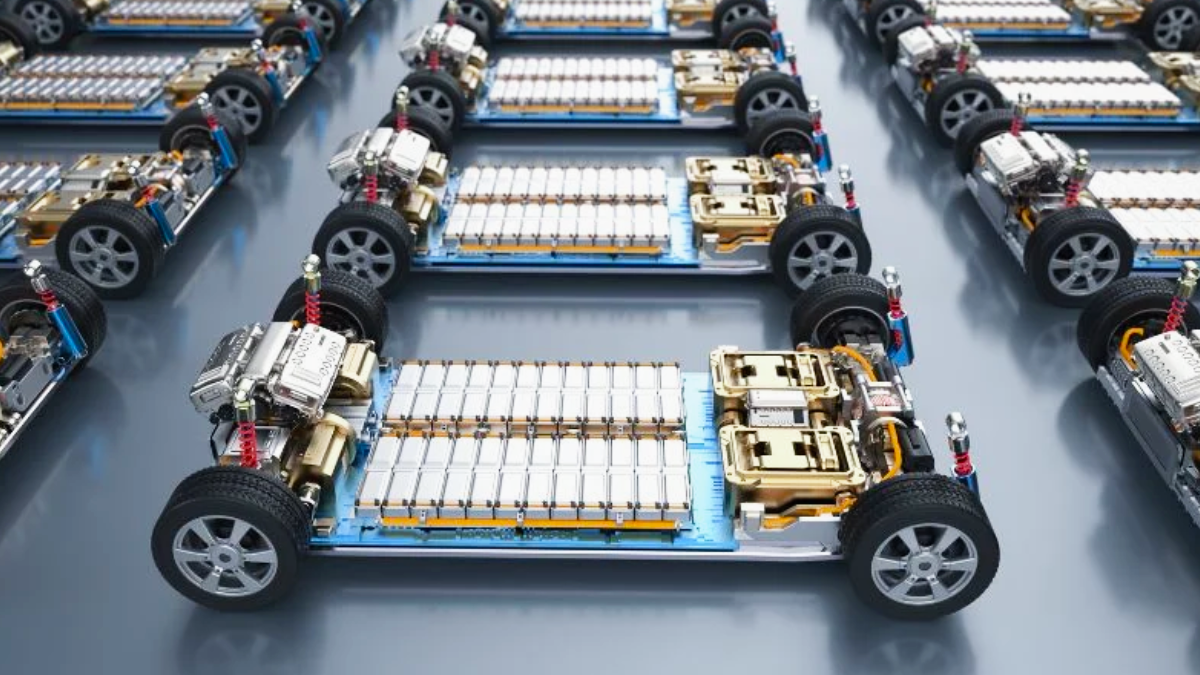
EV car batteries are costly, and they don’t have much. What you need to know about EV battery life and how to prolong it.
An electric vehicle can save you money on fuel, and most car buyers are taking the plunge. There’s one component that’s responsible for the functioning of an EV, and that’s the battery. These can be recharged again and store the electricity used to power the vehicle.
EV batteries are not low in price. The battery is typically a high-cost component of an electric car and can cost as much as $20,000, which means replacement can be a costly proposition. So, how long do EV batteries last? Most last between 10 and 20 years; for context, the average car on American roads is 12.5 years old. The battery life can vary significantly depending on certain factors. Let’s see those factors.
Key Takeaways
- EV batteries mostly last for 10 to 20 years, but some factors can impact that lifespan.
- Things that affect battery life are: battery chemistry, driving habits, and environmental conditions.
- You can increase the capacity of your battery life by parking indoors, not doing aggressive driving, and following the carmaker’s charging recommendations.
Factors Influencing Battery Longevity
These are the factors affecting your EV battery’s lifespan:
Battery chemistry
There are two main kinds of EV batteries: lithium-ion and nickel-metal hydride (NiMH).
Most all-electric vehicles have lithium-ion batteries. With that kind of battery, work capacity can decrease with age. This trait can minimize the car’s driving range and decrease the battery’s charging capacity.
NiMH batteries are not common in all-electric vehicles, but carmakers consistently use them in hybrids. NiMH batteries are quite durable in moderate weather, but harsh heat and cold can decrease performance and lifespan.
Driving habits and usage
Your driving habits play a role in battery life. Aggressive driving can strain your EV’s battery. It uses more energy; in the short term, this excessive energy use can eat up your car’s driving range. Over the long term, a lead-footed driving style can negatively impact the life of your EV’s battery.
Using a battery can also affect the lifespan of your EV’s battery. Every discharge and recharge cycle degrades your battery, which can have an effect over the years.
The environment can have a significant impact on battery life. But even though lithium-ion batteries have a higher capacity for environmental extremes than their NiMH counterparts, they can still decrease, so it’s essential to keep this in mind to maximize their lifespan.
Extreme temperatures can hinder the chemical processes that help the battery produce energy. All other things being equal, the ideal temperature for EV batteries falls between 68 and 86 degrees Fahrenheit.
Maintenance practices
For the most part, EV batteries are maintenance-free. However, your approach to EV charging can impact how well the battery is maintained.You can charge your EV in three ways. The first is Level 1 charging, which involves the use of a household electrical outlet to charge the car. This is the slowest charging method. It can take many days to fully charge. Another is Level 2 charging, which needs a 220-volt charger that you can have installed in your garage. It’s much faster than Level 1 charging and permits you to refill fuel in your vehicle in hours. Finally, there’s DC fast charging, the quickest charging method available. Public charging stations use DC fast chargers to work quickly. With many vehicles, this method allows you to recoup 80% of the battery’s charge in 30 minutes or less.
Fast DC charging puts more stress on the battery. For that reason, while using this charging method on road trips is totally fine, it’s not suggested for everyday use. Level 2 is the best daily charging method if you want a long battery life.
It’s mandatory to consider the state of the battery charge. Your EV allows you to set the extent of the charge; in most cases, it’s ideal not to charge beyond 80% of the battery’s capacity. Charging to 100% is okay for long trips and is more convenient in those situations. However, charge to 80% in everyday use to maximize battery life.There are exceptions to that rule; some EV batteries do better with a 100% charge. One example is the battery in the base-trim Tesla Model 3. That battery kind is a subset of the lithium-ion category. Tesla recommends that Model 3 cars with LFP batteries charge to 100% regularly.
Consult your EV’s owner’s manual to clarify the best charging practices for your car’s battery.
How to Prolong EV Battery Lifespan
Here are some tips for optimizing the lifespan of your EV’s battery:
Park in a garage. If you live in an area that gets very hot or very cold weather, it’s ideal to park in a garage whenever possible. Doing this will save your car’s battery from hot temperatures that can shorten its life.
Avoid aggressive driving. EVs deliver instant torque, and it can be tempting to take advantage of this with quick pops of acceleration. However, working the throttle with a gradual increase in speed is better if you want to prolong the life of your EV battery.
Follow the carmaker’s charging recommendations. Most EV batteries do best with an 80% charge in daily use. However, there are exceptions, such as the base-trim Tesla Model 3; Tesla recommends a 100% charge for that car’s battery. If you’re unsure what’s best for your EV’s battery, check the owner’s manual for the carmaker’s recommendations.
